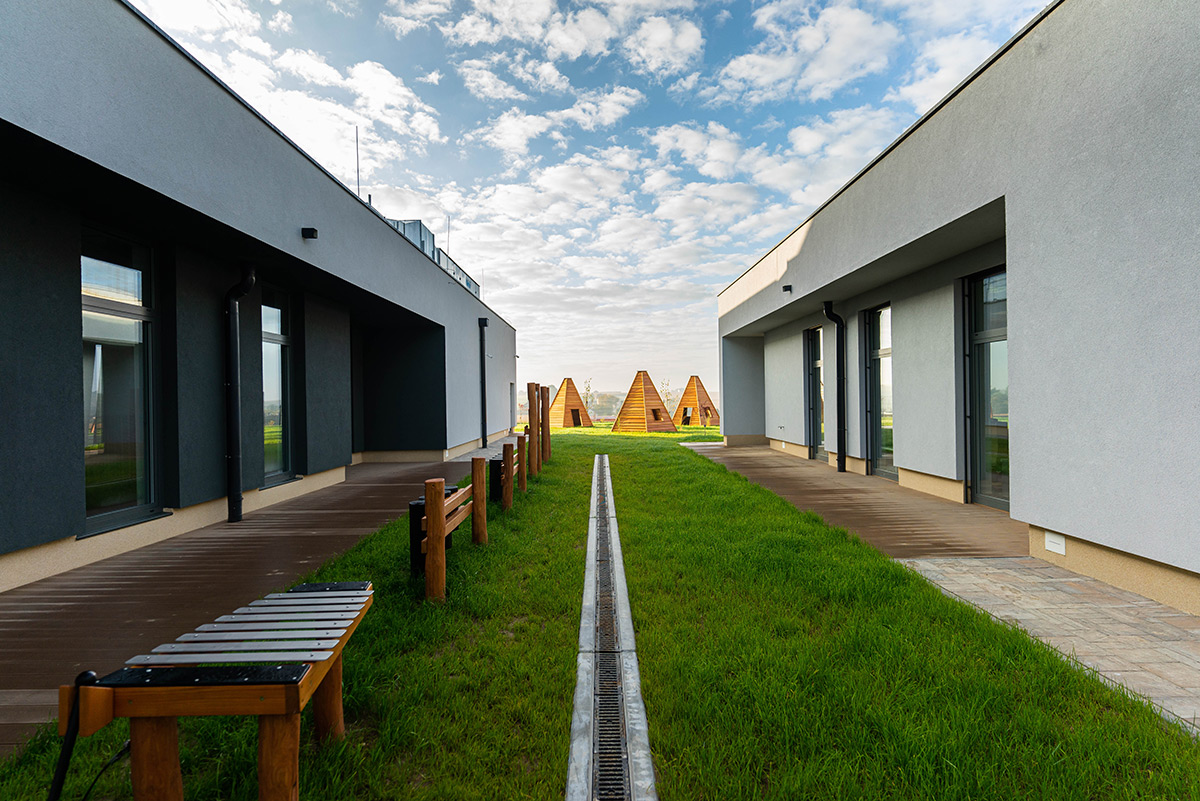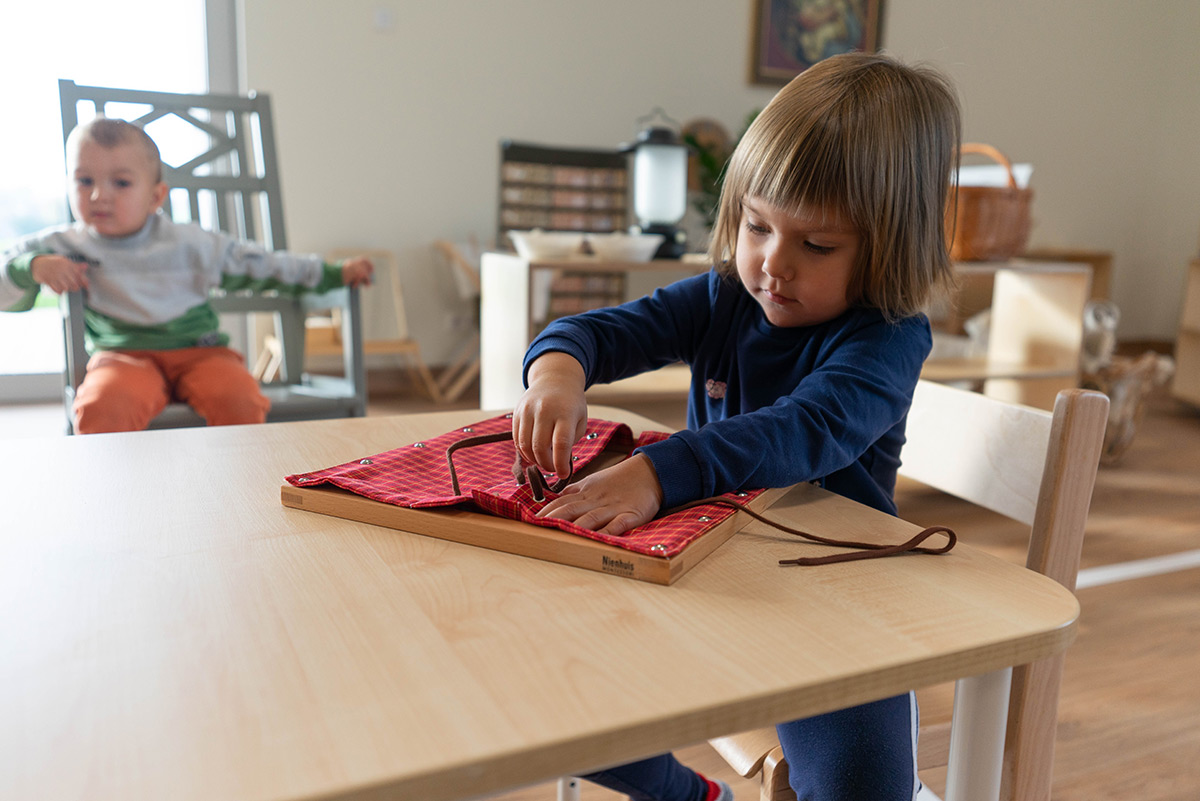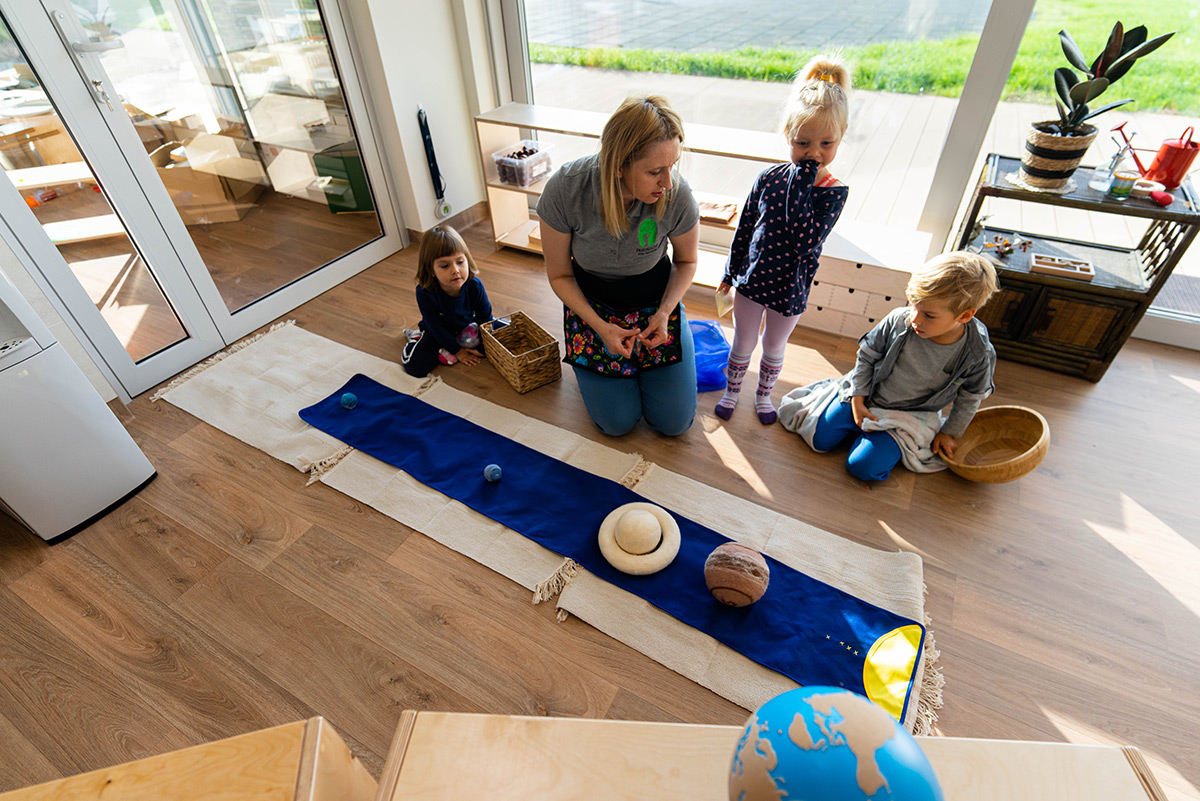10 May, 2023
initiatives

Last September, classes began at the Montessori Kindergarten and Nursery. The facility is located next to the Eko-Okna factory in Kornice. There are still free places available!
The Montessori complex in Kornice comprises five buildings connected by corridors. The environment has been designed to allow children to work independently. ”In our kindergarten, we follow the pedagogy of Maria Montessori. It is not a new method, as it has been known for over 100 years. We are fully implementing it here as one of the first institutions in Silesia," says Natalia Majewska, Director of the Kindergarten. The idea of the kindergarten is to make children feel at home. "We take care of the homely atmosphere – we try to make sure that the smell of homemade dough is in the air, and the children feel safe here above all," she adds.
As Ms Majewska explains, the idea for the facility was born out of the need for a high-level, unconventional place to give children free space, without punishments and rewards, where they can develop their intrinsic motivation. "We are starting a new chapter in the history of Eko-Okna, which is to engage not only in the development of the employee but also in his family, which, as we know, is the foundation of the most precious values," says Natalia.
The Montessori method is everything about seeing children as independent, capable, and self-determining individuals. The more freedom we give children, the more independent they will become. "We give children freedom – we don't restrict them, that is, we don't say things like <<Mommy will wipe your face>> or <<Mommy will put on your shoes,>> but we give children the space to act independently to notice, and to experience," says Ms Majewska.
"The landmark phrase that Maria Montessori once heard from a little girl was: <<Help me do it myself.>> This is the essence of Montessori pedagogy - we give children the space to develop”, Ms Majewska explains.
The room where the classes happen looks like the world of adult people seen from a bird's-eye view, which means the size is adapted to the children. ”We have a kitchenette that the children can reach without any obstacles, and in the bathrooms, the sinks are of such height that the children can use them freely," he says. The children have time for their work, quiet lessons, experiences, contact with nature, sensory activities, and musical and sports development.
The Montessori approach involves going outside daily as part of the activities, regardless of the weather. ”We have a built-in playground around the facility, and a vegetable garden where the children plant and take care of the plants. There is also a path for running bikes," Ms Majewska explains.
The Montessori Nursery and Kindergarten also takes particular care of children's nutrition. Experienced cooks prepare healthy and varied meals on-site. "We rely on natural products. On the menu, we have spinach waffles with carrots, lazy noodles with berry sauce, and a variety of groats, homemade baked goods, and compotes," she says.

In the kindergarten, there are no general development plans. Each child is approached individually. "The Montessori method is a program that also greatly serves children with disabilities or developmental imparities," explains Ms Majewska.
Thematic events are organised for children, which provide an opportunity for integration and development. One of the ideas is "forest Mondays". "Montessori Kindergarten and Nursery in Kornice is in a great location. We have a forest nearby, where we take the children every Monday. During this walk, we learn through play, using nature, such as leaves. We learn to name the animals and plants we meet," adds Natalia.
In a Montessori kindergarten, there are no toys that we are used to. "A child will not find plastic, playing music, or popular toys with us. Materials used for work with children are called developmental materials here," explains Ms Majewska.
There are more than 500 developmental materials in kindergarten, and they are divided into five sections: everyday life, space (this section includes science), mathematics, sensorimotor, and language. Each department is designed to develop the child in a specific area. ”For example, in the department of daily life, children learn to pour and sift. These materials are individually presented beforehand by the teacher. A preschooler usually has a presentation once, but if the teacher observes that the child is misusing the material, he makes the presentation again," Ms Majewska explains. Emotions are also discussed frequently with the children, and they become familiar with them.

Children can be brought to the kindergarten and the nursery as early as 5:30 in the morning and picked up until 4:30 p.m. "The hours are designed so that all parents, including Eko-Okna employees, have the opportunity to enrol their child in this kindergarten and nursery and bring and pick up their child at convenient times," Ms Majewska concluded.
Agata Paszek
PR Specialist
redakcja@ekookna.pl
Enrollment in Montessori Kindergarten and Nursery in Kornice
Before enrolling a child in a nursery or kindergarten, it is necessary to make an appointment for a family meeting, which lasts an hour. During the meeting, fundamentals of Maria Montessori pedagogy are learned, and the details of enrolling a child in the institution are established. Enrollment for such consultations can be made on akademia.ekookna.pl.


Hotline: +48 32 459 15 00 Contact for new business customers only. Connection fee in accordance with the operator`s price list.
E-mail: quoteuk@ekookna.com newclientuk@ekookna.com Contact for business customers only.
Eko-Okna S.A.
Kornice, ul. Spacerowa 4
47-480 Pietrowice Wielkie
NIP: 6391813241
KRS: 0000586067